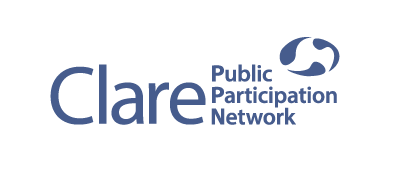Call for nominations for National Advisory Forum June 8th 2017.
Notice of election on June 29th* Call for nominations on or before June 16th at 5pm
Clare PPN has been invited to nominate one person from each of our colleges (Environmental, Social Inclusion, Community and Voluntary) to sit on the National Advisory Forum for Public Participation Networks in Ireland. Every PPN in Ireland is invited to put forward three nominees and three people will eventually be selected from the whole country to sit on the forum.
This forum will meet a minimum of four times per year and those meetings will take place in Dublin. Representatives will be paid civil service level expenses but will not receive any other payment. The forum will work to strengthen the PPN’s nationally and to develop policies for them. More information is provided for potential nominees at the foot of this page.
All member groups are invited to give us their nominations on or before Friday 16th June at 5pm
Who is eligible for nomination?
- All nominees must be in a group that is a member of Clare PPN.
- Each group can only nominate one person for one college – eg environmental groups can only nominate a person for the environmental college and so on.
- Nominees must consent to their own nomination- it is the responsibility of the group who nominates them to ensure this.
How can your group nominate someone?
Contact your nominee and ask for their permission and get them to send you a short biography – a few lines about their interests and experience and their contact details and then e-mail sarah@clareppn.ie before the 16th June at 5pm with the following information-
- Your name and contact number
- Name of your group
- Name of the person you are nominating and name of the group they are a member of
- Contact details and short biography of the person you are nominating
*If there is more than one nominee in each category we will hold an election by email with close of voting taking place on June 29th. Once nominations are closed the details of nominees in each college will be circulated to members of that college along with a call for votes. Each member group will have one vote.
Information for prospective nominees
The timeframe involved
It is proposed that the members of the new Advisory Group would meet for the first time in September/October 2017.
The term of office of the Advisory Group
The members of the new Advisory Group would each be appointed for a period of 3 years
(September/October 2017 – August 2020)
Meetings
The National Advisory Group will meet at least four times in a full year, typically once a quarter. For convenience purposes meetings meetings to date of the Group have been held in the Custom House, Dublin 1 which is located next to national rail, bus and Luas services. It is expected that this venue will continue to serve for meeting of the new group.
Agenda and minutes are circulated to members within two weeks of a meeting.
Additional meetings may be organised as and when required.
Travelling & Subsistence.
Current Civil Service rates apply to travel and subsistence expenses incurred by members of the National PPN Advisory Group travelling to and from meetings. It is Departmental policy that public transport should be used wherever possible if it is deemed necessary to travel for meeting purposes. Members should only use their cars to travel to and from meetings in where no suitable public transport (e.g., train or bus) is available
Purpose and Objectives of the National PPN Advisory Group
The National Advisory Group’s role will be to advise and support the Department in the development and operation of the PPNs. In that the Advisory Group will
- Develop key performance indicators for PPNs and Local Authorities in conjunction with the Department.
- Analyse and discuss local progress and liaise with DHPCLG on addressing priority issues identified.
- Monitor progress on the development and implementation of PPNs across the country to ensure consistency of implementation across local authority areas.
- Where inconsistencies are identified, make proposals on how these issues can be resolved.
